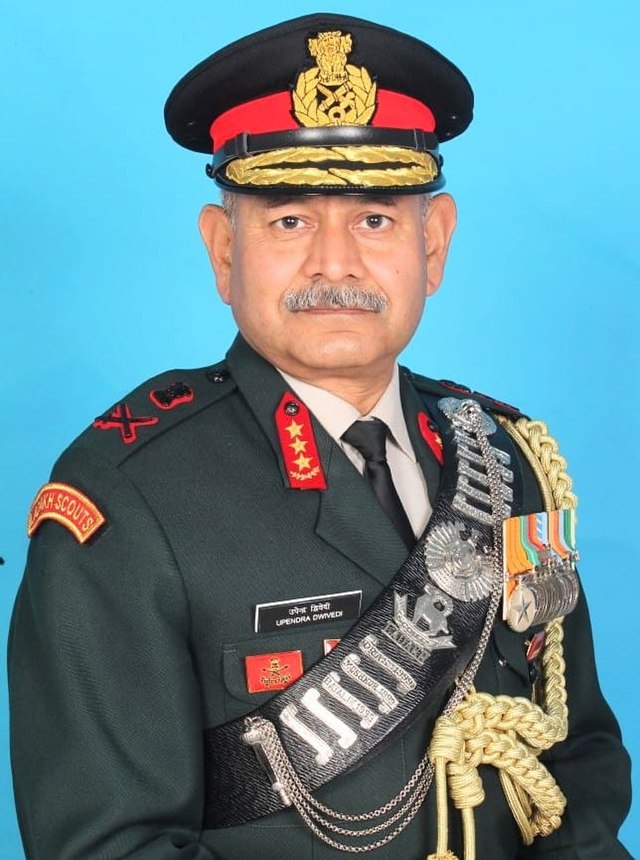'Agnipath' to help services in long run, will make youngsters better citizens, say top commanders

- Country:
- India
The Agnipath scheme is a transformational reform for the armed forces and the nation, and aims to bring paradigm changes in the human resources management of the Army, Northern Army Commander Lt Gen Upendra Dwivedi said here on Wednesday.
Briefing reporters on the new recruitment scheme, the army commander said it offers the opportunity to young people from across the country, driven by patriotic spirit, to serve in the Indian Armed Forces as 'Agniveers' for a short duration of four years.
India on Tuesday unveiled the scheme for the recruitment of soldiers into the army, the navy, and the air force, largely on a short-term contractual basis to cut the ballooning salary and pension bills and enable a youthful profile of the armed forces.
''On completion of the four years, Agniveers will go to the society as a disciplined, dynamic, motivated, and skilled workforce for employment in other sectors, including corporate and industry, CAPFs (Central Armed Police Forces), and DPSUs (Defense Public Sector Undertakings) to pursue a career in jobs of their choice,'' he said.
The scheme also aims to harness the 'Skill India' initiative by enrolling candidates qualified in ITI or diplomas with the necessary skills for certain technical trades.
Agniveers will carry a unique resume that will be an asset to the society and the organization they join after exiting the armed forces.
They will get Agniveer skill certificates, award of credits for facilitating higher education, financial package to start a new enterprise and adequate skills to be absorbed in the market, he added.
For the army, Lt Gen Dwivedi said, the biggest takeaway is to enhance the youthful profile for organizational needs by reducing the average age profile of soldiers from 32 years to 26 years over some time, increasing the technological threshold, and optimizing the duration of recruit training to ensure better availability of soldiers for active duties.
''We are banking on a youthful and fitter group of soldiers being led by the specially selected, best among the best leaders, who are motivated, well trained and technically adept, to deliver the results in a future conflict scenario,'' he said.
He said the notification for recruitment in the army will be issued by next month.
Asked how the scheme would benefit the force in Jammu and Kashmir, the army commander said the northern front is a high-altitude area, and ''the younger a soldier, the fitter will he be''.
''With age, high altitude problems arise. So, this scheme is a good one. This will bring in new blood, new youngsters, and their freshness will create success in us,'' he said.
He also said the scheme will attract young people and ensure that they do not tread the wrong path.
Meanwhile, Air Officer Commanding-in-Chief, Western Command, Air Marshal Sreekumar Prabhakaran said it is premature to say whether the scheme will stop radicalization of young people in Jammu and Kashmir, but asserted, ''I am quite sure that if a youngster (from the union territory) joins the military under the scheme and stays with us for four years, he will leave as a different person and probably more of an Indian than a radical.'' ''Only time will tell us about that but I am quite sure that if a youngster who has, as you said, got brainwashed (into terrorism), joins the services under the scheme and stays with us for four years, I am sure he will be a different person and probably more of an Indian than a radical as you brought out,'' the air marshal told reporters.
Responding to a question on criticism of the scheme from different quarters, Prabhakaran said everybody has the right comment.
''When there is some change, there is always going to be some hiccups. The Agnipath scheme has not come out of the blue but there was a lot of discussion at the senior officers level from the air force, navy, and the army for about two years. The government supported the idea,'' he said.
(This story has not been edited by Devdiscourse staff and is auto-generated from a syndicated feed.)
ALSO READ
Kikkoman India Hosts Second Culinary Experts Meet-up, Focusing on Innovative Ingredient Usage in Indian Cuisine
Indian-American golfers Theegala and Bhatia set their sights on making a mark at Augusta Masters
Diaspora body urges US govt, universities and student organisations to work towards addressing the spike in deaths of Indian-origin students
Top Indian court blasts drugs regulator for not acting against yoga guru's medical firm
Indian democracy facing tremendous challenge, says Mukul Wasnik










